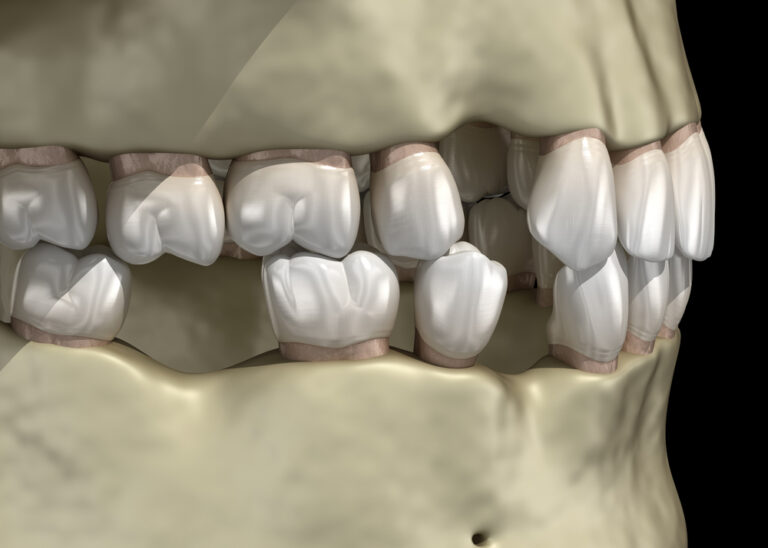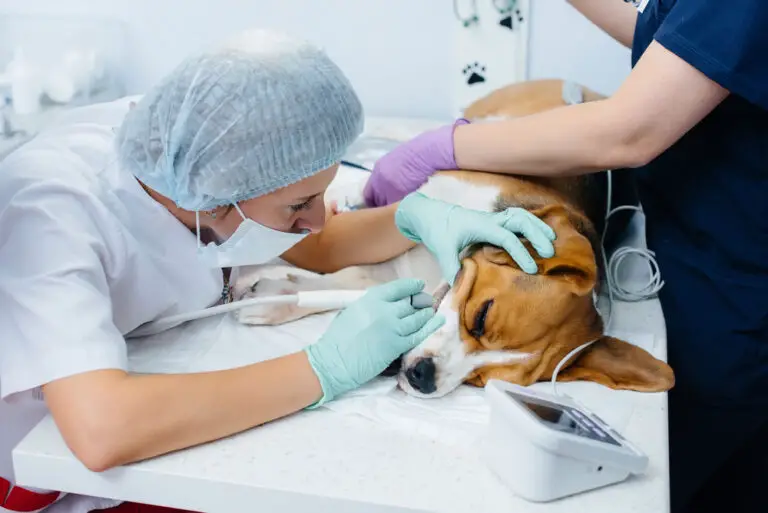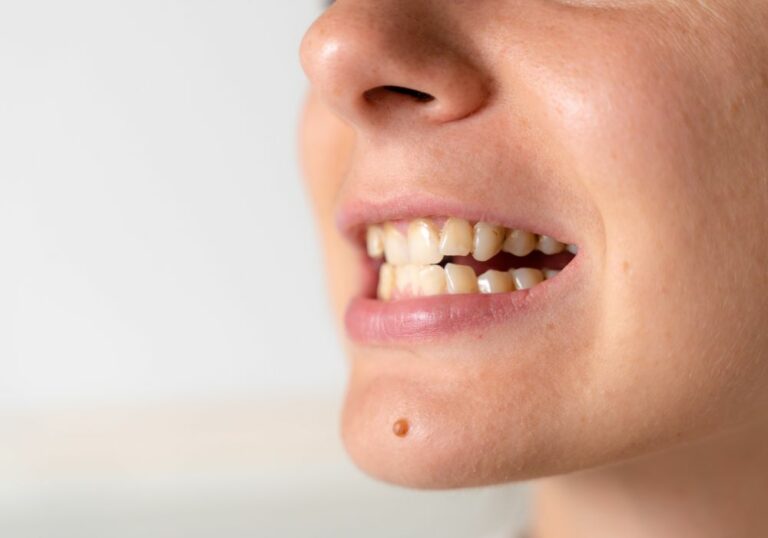If you have several missing teeth or are self-conscious about the appearance of your teeth, you may be considering a full mouth of dental implants. Like any major dental procedure, the cost is a leading factor in whether you follow through.
The cost to get a full mouth of dental implants varies depending on your location, but expect to pay anywhere from $12,000 to $25,000 if using an All-on method. If you want a full set of teeth that are individually implanted, the cost skyrockets to $70,000.
This may seem like quite the price tag, but most who get a full mouth of dental implants don’t regret it. Understanding why it costs this much and what options there are will help you decide on how best to take care of your mouth.
Full Mouth Implants Explained
There are two ways to get a full mouth of dental implants: All-on-Four (or All-on-Six) or implants for every tooth you replace.
The All-on implants (also known as Teeth-in-a-Day) are a permanent FDA-approved method for replacing an entire mouth of teeth. Your dentist installs four (or six, depending on jaw condition) implants that will support a fixed, full-arch prosthetic.
This is less invasive, less traumatic, and less expensive than implanting each tooth individually, and it has many benefits over dentures.
What Affects the Cost of a Full Mouth of Dental Implants?
Aside from the route you choose to take, the cost of full mouth dental implants depends on:
- Your current mouth condition
- The location of the dentist you use
- What your insurance may cover
These variables make it difficult to pin down an accurate average cost. We recommend that you discuss the dental implant procedure with your dentist to fully understand the cost of dental implants in your situation.
Current Mouth Condition
A consultation and thorough evaluation is essential to determine if you’re eligible for a full mouth of implants and if you need any restorative care to support the implants.
Depending on your situation, the assessment of your current mouth condition may add another $350 to $500 to your final bill. Your dentist will perform a comprehensive exam and use 3D imaging to make sure everything is as it should be.
Your dentist will need to extract teeth and may need to do a bone graft to make sure your jawbone is strong enough to handle the implants. These procedures add onto the cost, and they differ from person to person.
Dentist Location
The higher the overhead costs of your dentist, the more they need to charge for their procedures. This is why rural dentists and health centers usually cost less than those in metropolitan areas; as long as rent is low and they have a steady stream of patients, the savings can trickle down.
If you’re shopping around for a dentist and worried about the cost of a full mouth of dental implants, look in areas where you know rent is low. This shouldn’t be more important than finding an experienced oral surgeon, but it should help you find someone in your budget.
Insurance Coverage
Dental insurers can be fickle when it comes to a full mouth of dental implants. They may consider this a cosmetic procedure that doesn’t fall under your dental insurance plan, so don’t expect them to cover it in full.
Insurance may only cover certain materials or procedures. Working with a dentist familiar with your policy or staying in contact with your insurer can help you do things in a way that saves you the most money.
Is it Worth it to Get a Full Mouth of Dental Implants?
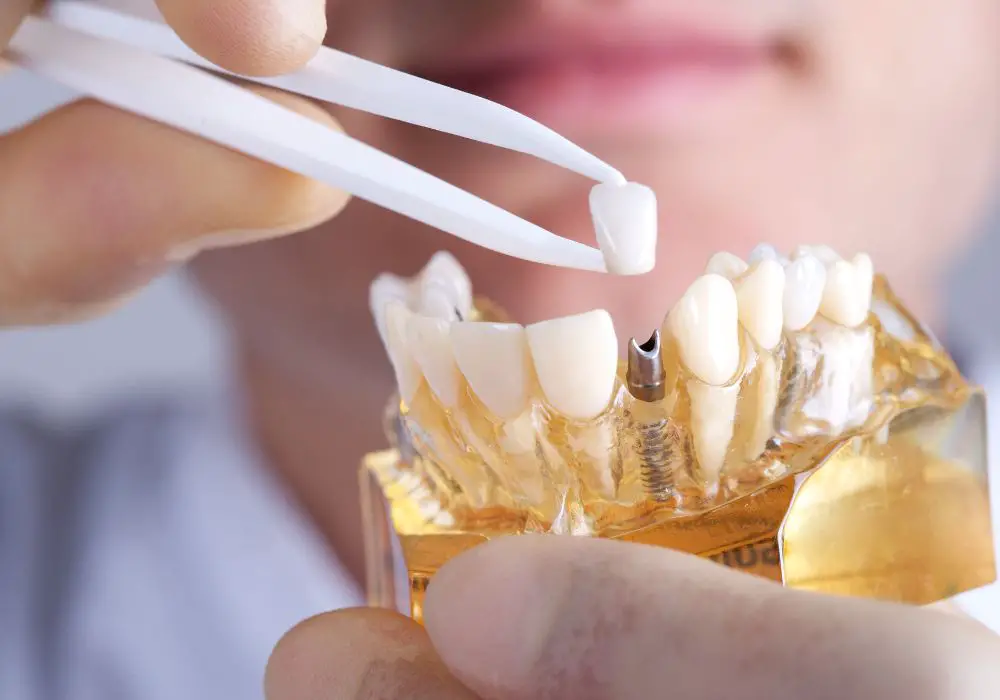
If you qualify for a full mouth of dental implants and can afford the procedure, it’s a worthwhile procedure. It’s not the cheapest type of full mouth replacement out there, but it’s easier to maintain and lasts longer than other options.
We explain several options for financing your full mouth of dental implants below, but understand that it’s not something you should do if paying for it will loom over you financially.
In some cases, it may be better to go with a cheaper alternative until your financial situation changes.
Alternatives to Full Mouth Dental Implants
If you only need a few teeth replaced and don’t anticipate future replacements, it may be better to do single implants. These cost about $1,500 to $2,500 per implant, crown, and abutment. You should also consider exam fees as well as extraction costs that may add onto this.
If you’re not ready for a full mouth of dental implants, you can get a full set of high-quality dentures for about ¾ the prices. Cheaper, more temporary dentures will be your most financially friendly option, but they will only last a few years at the most.
If you’re considering dentures, keep in mind that they must be removed to be cleaned and they’re not as stable as implants. This may affect eating things like apples or corn on the cob.
Traditional dentures leave more room for bone loss than tooth implants. If you use them as a long-term solution, expect sinking in areas of your face like your jaws and lips. Consider the impacts on your appearance and potentially your speech before choosing this option.
There may be cost-saving benefits to getting your full mouth done at once, but you can also replace one arch at a time. If you’re only missing teeth on the upper portion of your mouth and the lower teeth seem fine, you can usually wait to do the surgery on the bottom.
This won’t save you in the long run, but it can lighten your current financial burden.
How to Pay For (and Possibly Save Money) on Dental Implant Costs
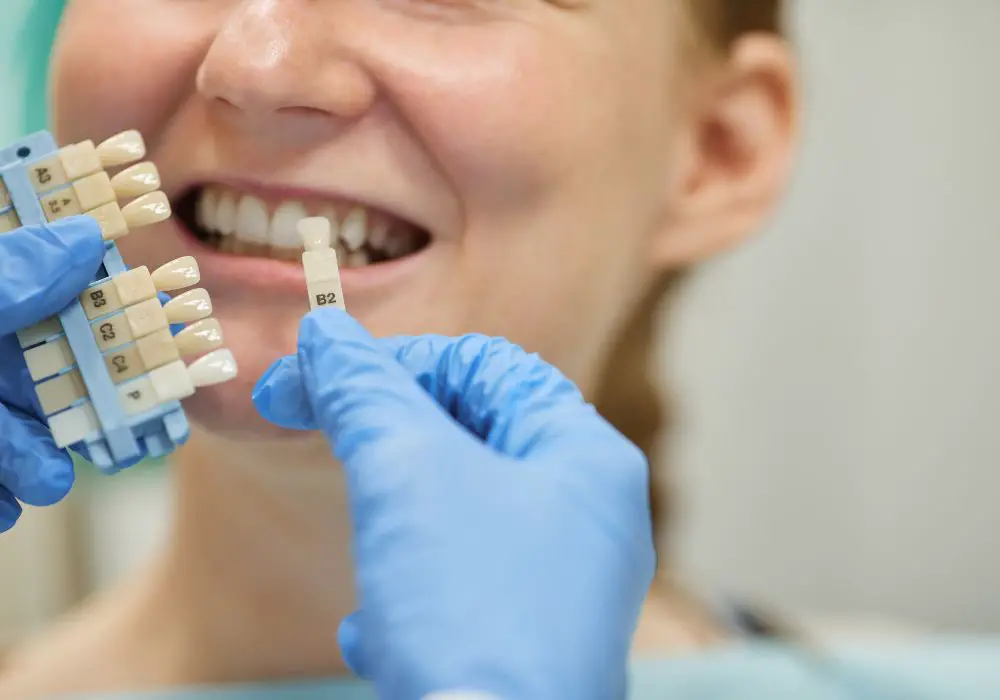
Because insurance is unlikely to cover part of, let alone the full amount, of your dental implants costs, you should explore all your payment options. Most people use a combination of resources to keep their out of pocket cost as small as possible.
These include:
- Personal loans or credit cards
- Home equity loans/Home Equity Line of Credit (HELOC)
- Flexible Spending Accounts (FSA) or Health Savings Accounts (HSA)
- Borrowing from their retirement plan
If you have insurance, don’t count them out completely. While they may not cover the entire procedure, your plan may cover X-Rays or other routine procedures. A dental facility familiar with your insurance and this procedure may have better luck than trying to establish elsewhere.
Personal Loans or Credit Cards
There are plenty of lenders and credit services out there that you can take advantage of for your medical expenses, but you need to be smart about it. Don’t jump on the first offer you get, and make sure you can handle the payments.
Look for lenders that deal with dental or medical expenses often, and ask your dentist if they have a company they recommend. Often, these lenders will offer you a plan that foregoes interest if you pay it off in a certain amount of time.
It can be more difficult to get an unsecured loan from a bank or credit union, especially for medical expenses. You need more than decent credit and ample income to qualify, and even that won’t guarantee approval.
Pay attention to the interest rate, and make sure there are no fine print surprises waiting to take advantage of you.
HELOC
A home equity loan or Home Equity Line of Credit may be the best option if you are a homeowner. These secured loan options allow you to borrow against the value of your home and have decent interest rates as well as write-off options.
Keep in mind that failure to repay can result in foreclosure, so you should have a positive financial situation before using this option.
FSA or HSA
When treating a dental disease, dental implants qualify for reimbursement with FSAs and HSAs. This does not apply to dental implants placed solely for cosmetic reasons.
An FSA is offered by your employers, but it’s something that you fund. This sets aside pre-tax money to use for health care expenses. An HSA is similar, but only available to those with a High Deductible Health Plan that credits some of your premium to the HSA.
An FSA zeroes out at the end of the year, while an HSA carries over. While they’re unlikely to cover the full cost of your implants, they’re a tax-free, interest-free way of minimizing the final amount.
Borrowing from a Retirement Plan
Similarly, you may be able to borrow from contributions made into a retirement plan. This would allow you to make low monthly payments over an extended period (usually around 5 years), and you don’t need to worry about your credit affecting eligibility.
When you borrow from your retirement plan, your repayment usually occurs through payroll deductions. Depending on your age and your plan, you may not need to repay what you borrow.
Conclusion
A full mouth of dental implants is not cheap by any means, but it’s a worthwhile procedure for your oral health and your self confidence. Consider all avenues before ruling it out completely, and don’t rule out less-expensive options in the meantime.
Estimating prices on dental procedures is difficult at best, so it’s always recommended you speak with your dentist or those local to you for the most accurate information. If you have any further questions about full mouth dental implants or their cost, comment below.



